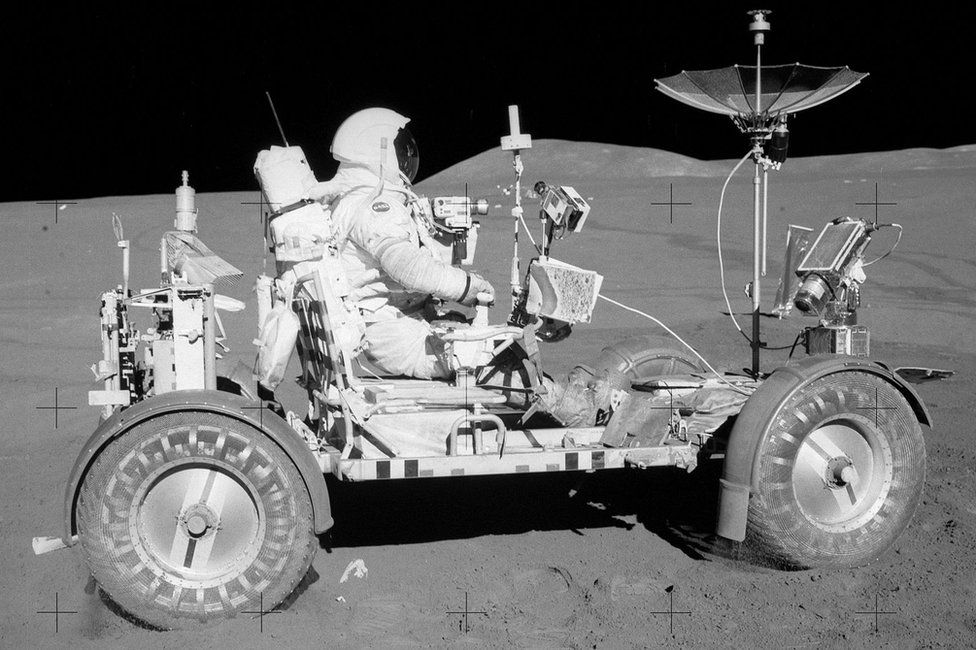5.10.2022
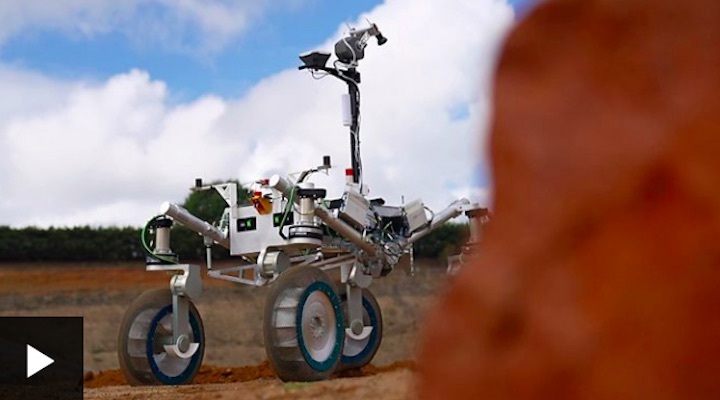
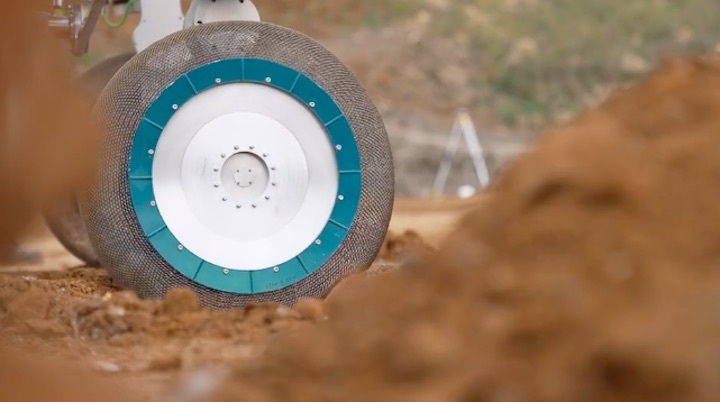
Engineers are looking for a new destination for a British-built rover that was meant to go to Mars.
They've got their eyes on the Moon.
The four-wheeled vehicle was originally developed to help bring back rocks from the Red Planet.
But officials at the US and European space agencies (Nasa and Esa) scrapped that idea in the summer, preferring to send helicopters to do the job instead.
This has left the UK team at aerospace company Airbus scrambling to find an alternative place to send their technology.
The prototype rover has been put through its paces in a Bedfordshire quarry.
Its cameras, combined with autonomous navigation software, allow it to pick a path and avoid obstacles without the intervention of a human operator.
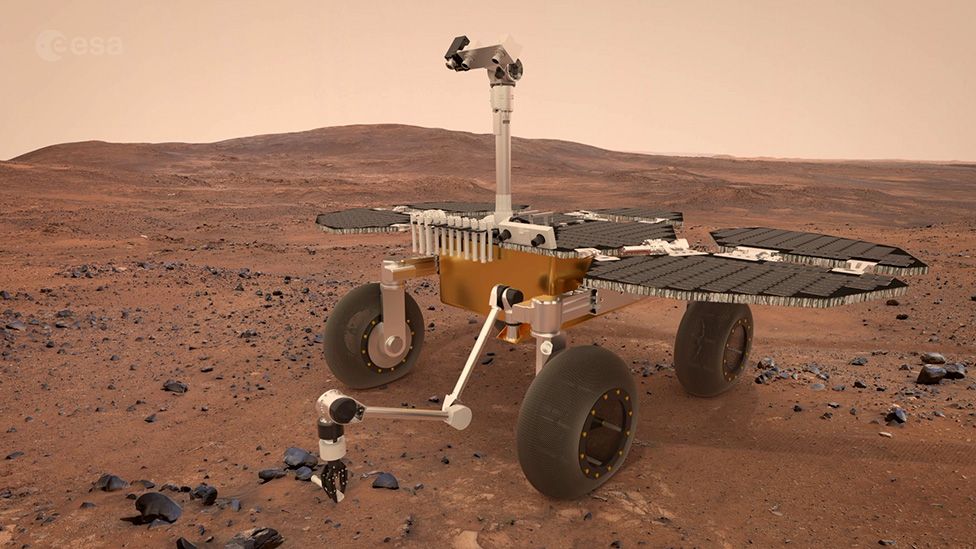
With the push to return astronauts to the Moon under Nasa's Artemis programme later this decade, there's a possibility the rover concept could now be repackaged to work on the lunar surface.
"It could be used anywhere that you want to do something autonomously," project testing lead Ben Dobke said.
"That could be moving around to build habitats, carrying things, or going into places that are particularly dangerous.
"Obviously, the Artemis programme is going to be a big deal. So, seeing this rover on the Moon would be really exciting," he told BBC News.
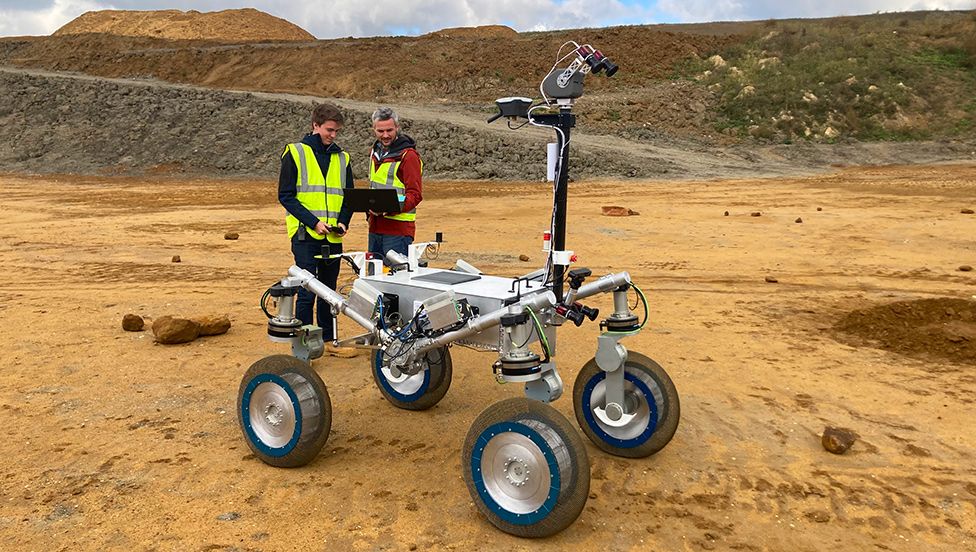
An Airbus Mars rover called "Rosalind Franklin" is already complete and awaiting despatch to the Red Planet, most probably in 2028. Airbus spent the better part of two decades developing and building the six-wheeled vehicle.
The prototype that's been climbing rocks in the Bedfordshire quarry was to have been the follow-up. But its cancellation in July has left Airbus looking for a way to hang on to the experts behind its development, and their knowledge.
This means identifying a mission opening that space agency officials regard as compelling and are willing to fund.
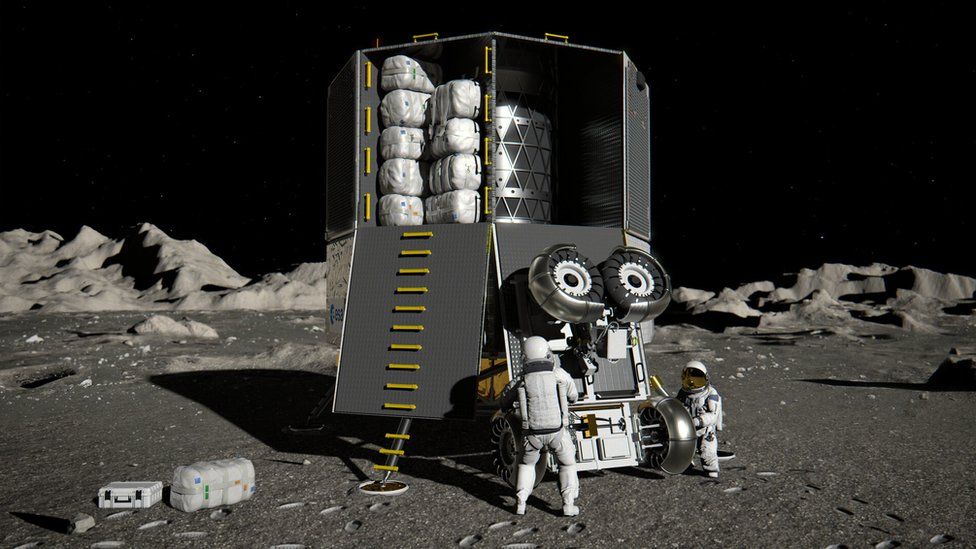
One avenue might begin to open up next month.
This is when European research ministers are expected to green-light something called the European Large Logistics Lander project (also known as EL3). It will deliver supplies to Artemis astronauts on the Moon.
If you look at the artist's impressions of this big freighter, it envisions putting a rover on the lunar surface.
This could be just the opening Airbus is looking for.
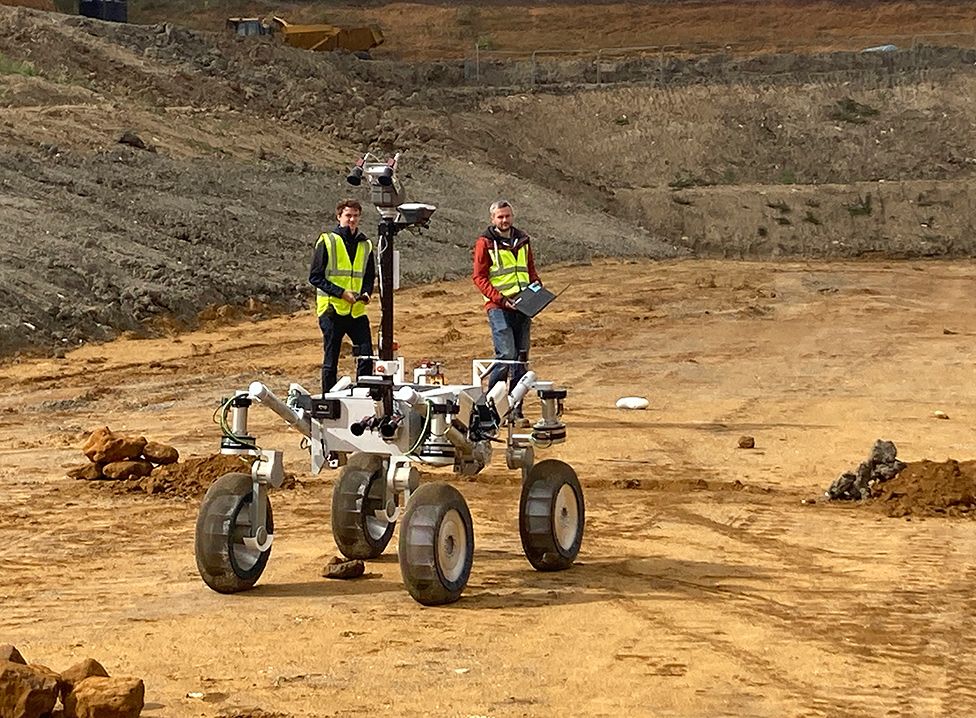
Clearly, you can't simply send a vehicle designed for one planetary body to a completely different world and expect it to work. The current concept would need modifications.
"The surface of Mars and the surface of the Moon are very different. The terrain is different, and the dust is different. The dust on the Moon is very abrasive and sticky," explained Adam Camilletti, who worked on the Airbus rover concept in its early days but is now with the UK Space Agency.
"One major consideration is the thermal environment. A Mars rover gets rid of heat in a different way to one on the Moon. And things like the solar cells - Mars is obviously a lot further away from the Sun, so the whole power system would have to be designed differently to work on the Moon."
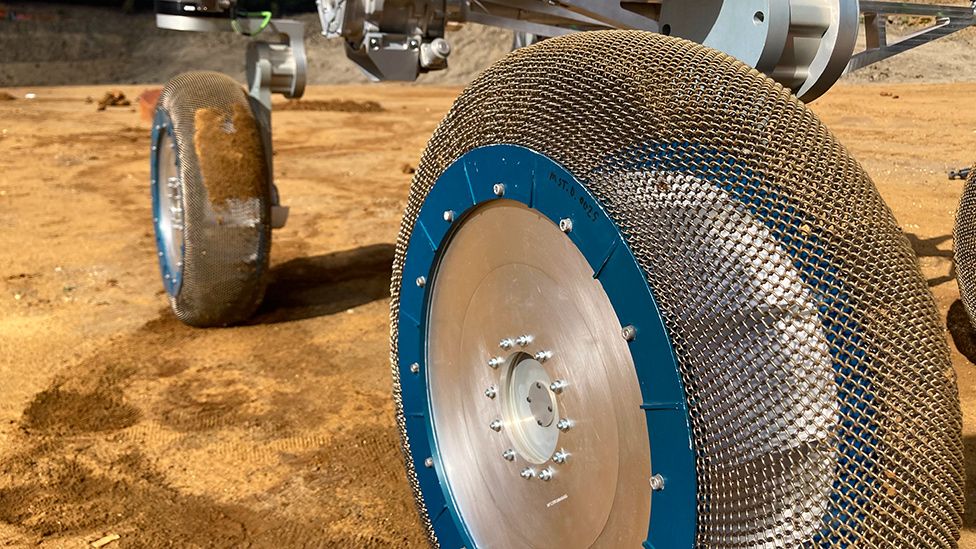
Work is continuing on the prototype using funds left over from the original Mars study contract. Had things proceeded as originally planned, Airbus could have expected a contract from Esa to build a "flight model" of its Mars rover valued in excess of €200m (£175m).
With that prospect now gone, what happens next?
Warren Hamilton, a guidance, navigation and control architect at Airbus, told BBC News: "We've built a centre of competence for European robotics at the Airbus factory in Stevenage. We want to see that maintained; we've got a lot of very skilled engineers who do the construction of the hardware and the design of the algorithms, etc. We very much want to see that continue."
